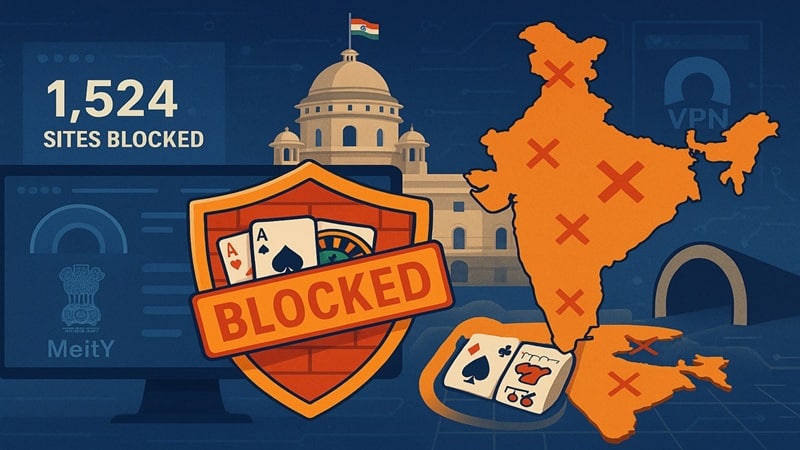
India blocks 1,524 gambling sites from 2022–2025 as MeitY and DGGI crack down on offshore operators avoiding 28% GST and 30% player tax.
From 2022 to June 2025, it has been widely reported that India’s Ministry of Electronics and Information Technology (MeitY) has blocked 1,524 sites.
Why such an accurate number? According to the Hindustan Times, the official figure is one officially reported by the MeitY directly to Lok Sabha on 23 July 2025.
For those of you reading this news piece who are not from India, the Lok Sabha is the lower house of the Parliament of India, similar to the House of Commons in the UK or the House of Representatives in the US, and it meets at Sansad Bhavan, New Delhi.
Interestingly, the Lok Sabha has special powers, such as controlling the budget, passing laws, as well as having the power to remove a government via a vote.
What does this mean for online gambling in India?
For now, the high number of blocked overseas gambling websites may satisfy the Lok Sabha. What it does do is deter players at what I would like to call layer 1 access, which is accessing casinos directly from an IP address and through an Internet Service Provider (ISP) in India.
Still, in reality, gambling blocks do very little to prevent players from accessing VPN-friendly overseas online gambling sites, which I like to call layer 2 access. As we know from other countries that block overseas gambling sites, there is no deterrent preventing players from using VPNs.
The source used to create my latest online gambling news report covering India was the ‘India blocks 1,524 gambling websites’ news piece courtesy of the Hindustan Times.
DGGI Issues Blocks to ISPs
In charge of issuing block notices is the Directorate General of GST Intelligence (DGGI). One of the key motivations outlines is that overseas operators offering player in India B2C online gambling services are not paying tax.
Hence, it is the DGGI, which carries out enforcement on behalf of the Board of Indirect Taxes and Customs, issuing take-down notices to ISPs.
As per the laws and regulations in India, all operators must be registered and operate under the rules outlined by the Integrated Goods and Services Tax (IGST). Under this framework, all online gaming is subject to a crazy 28% tax regime.
For most operators, the taxation is going to encourage them not to sign up under the rules of the IGST, and instead take their chances operating overseas and attracting customers in India, even if that means risking being blocked. If their site is blocked, these casinos and sportsbooks can still rely on players in the country finding their platform via VPN access.
Illegal Games of Chance Also Deter Overseas Operators From India
Another rule that is generally enforced across states in India that do allow online gambling is that online gambling sites cannot offer games of chance. Online slots, roulette, baccarat and even the popular and traditional game of Andar Bahar are deemed illegal.
Games of skill are, however, allowed and popular. Fantasy Sports, Rummy and Poker have been passed as skill games. Yet, despite the huge scope for growth in India’s real money gambling market, most operators with the capability of entering the country’s iGaming industry have stayed away due to that one crippling factor – the 28% gambling tax.
India’s Two-Two Tax Gambling System is Counterproductive
There are two types of taxes in India that have severely dented the attractiveness of gambling on sites legally licensed to do so in the country.
| Tax Type & Paid By | Applies To | Rate |
|---|---|---|
| Income Tax (paid by player via TDS) | Player’s winnings from gambling, betting, lotteries, fantasy sports, etc. | 30% flat + surcharge + cess |
| GST (paid by gambling operators) | Online gambling revenue, total bet amount, entry fee | 28% |
| GST on Imports (paid by Indian operators) | Import of services from offshore gaming providers | 28% under Reverse Charge Mechanism (RCM) |
| TDS on Non-resident Operators (deducted by payment processor) | Payments made to offshore gambling platforms without Indian tax presence | Up to 20% under Section 195 (varies by treaty) |
28% Tax Cripples Operators
From the operators’ point of view, those currently regulated in India, the GST tax cripples their ability to offer value to their players. As a result, the taxes fuel the black market where access to overseas online gambling sites is easy, regardless of how many sites the government blocks. There is currently a high court ruling awaiting judgment regarding the tax, which we reported here – India Awaits Gambling Tax Decision.
30% Personal Gains Gambling Tax Puts Players Off
Who wants to pay 30% tax on their gambling winnings? Especially when you can avoid them by using a VPN to access an overseas online casino or sportsbook. On top of this, players playing on these overseas sites have access to games banned on locally licensed gambling sites in India. With that said, if you’re thinking crypto, there is the matter of 30% taxes on crypto gains, which I will cover in the opinion piece below.
Casinoplusbonus Opinion – Blocking Sites Does Not Work!
The way the system is set up is draconian. It would have worked if the government had placed a gambling transaction block on all banks in the country for INR deposits. However, today, cryptocurrency offers a workaround with its borderless transaction ability.
Most crypto holders can use non-custodial wallets, which do not need any KYC verification. There is a very low chance, well, no chance at all to be honest, of the government using resources to track down individuals gambling using crypto non-custodial wallets and VPN access. And with India’s youth so tech savvy these days, they know how to find ways to gamble online and gain more value for their money as opposed to playing on sites in India.
With that being said, there is a 30% tax on crypto gains in India. Therefore, if players do win, any crypto gains brought into the country via crypto-INR conversions are still subject to a 30% tax.


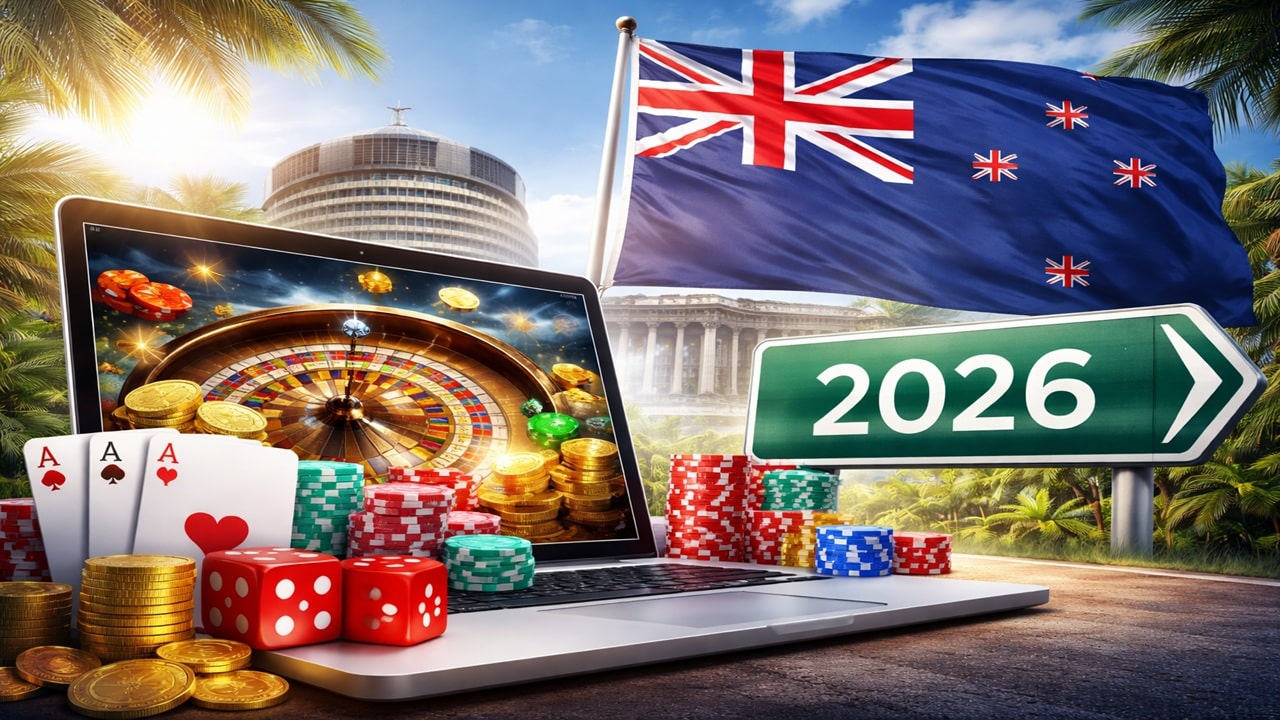




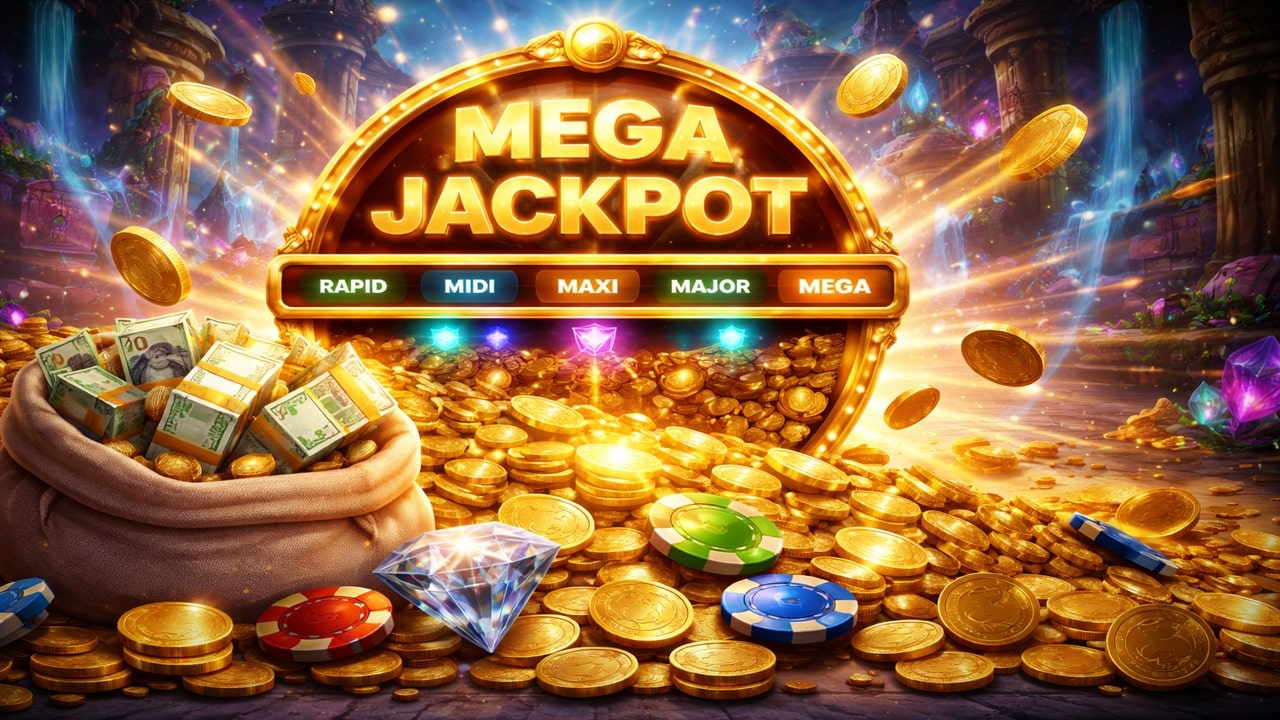











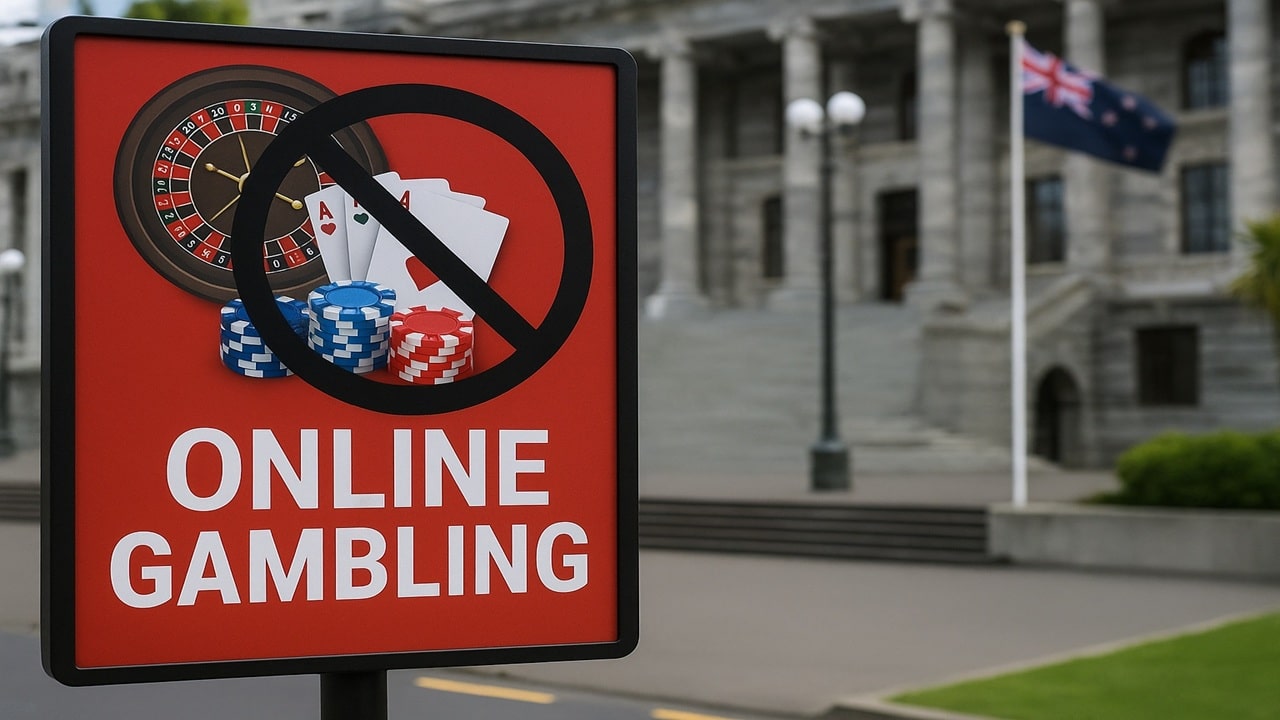


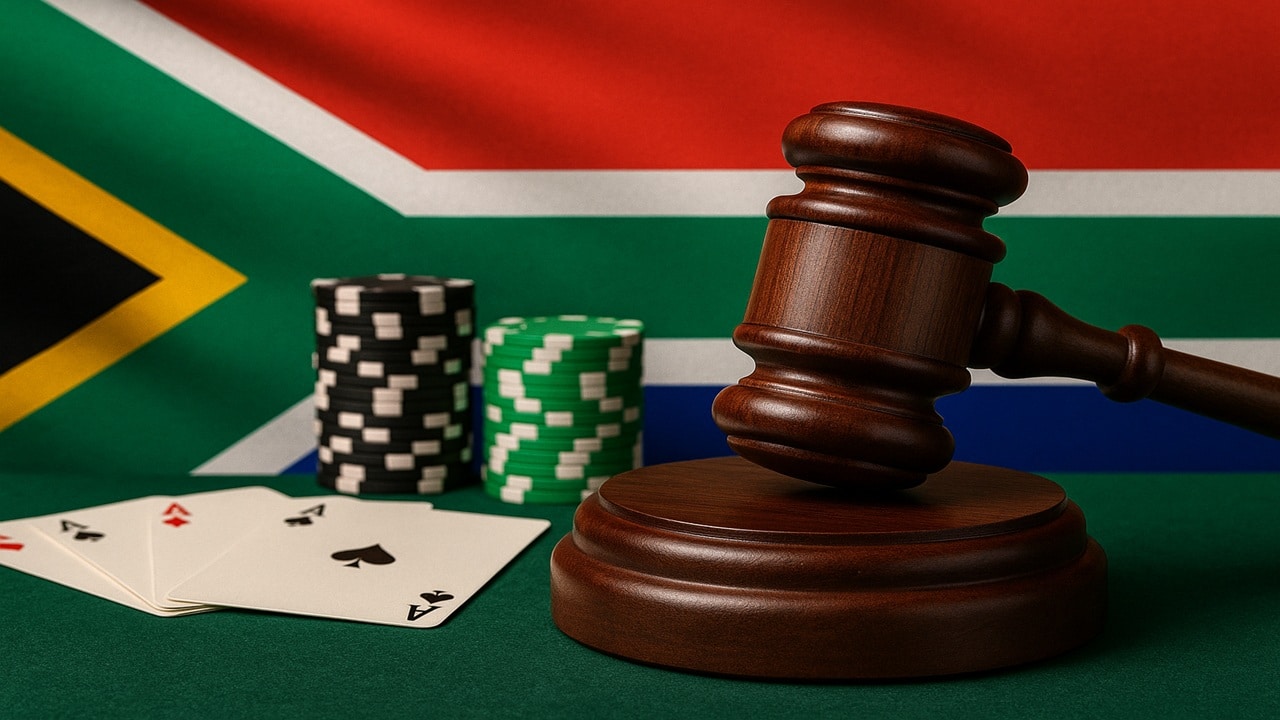
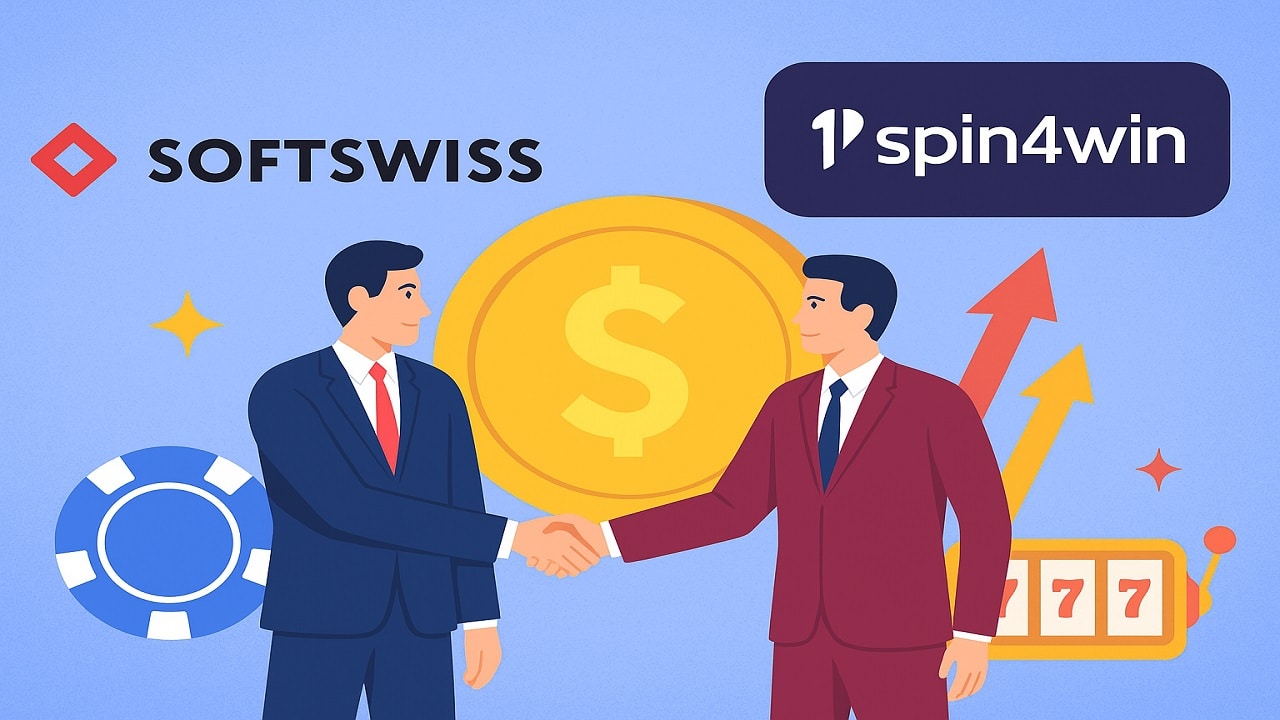

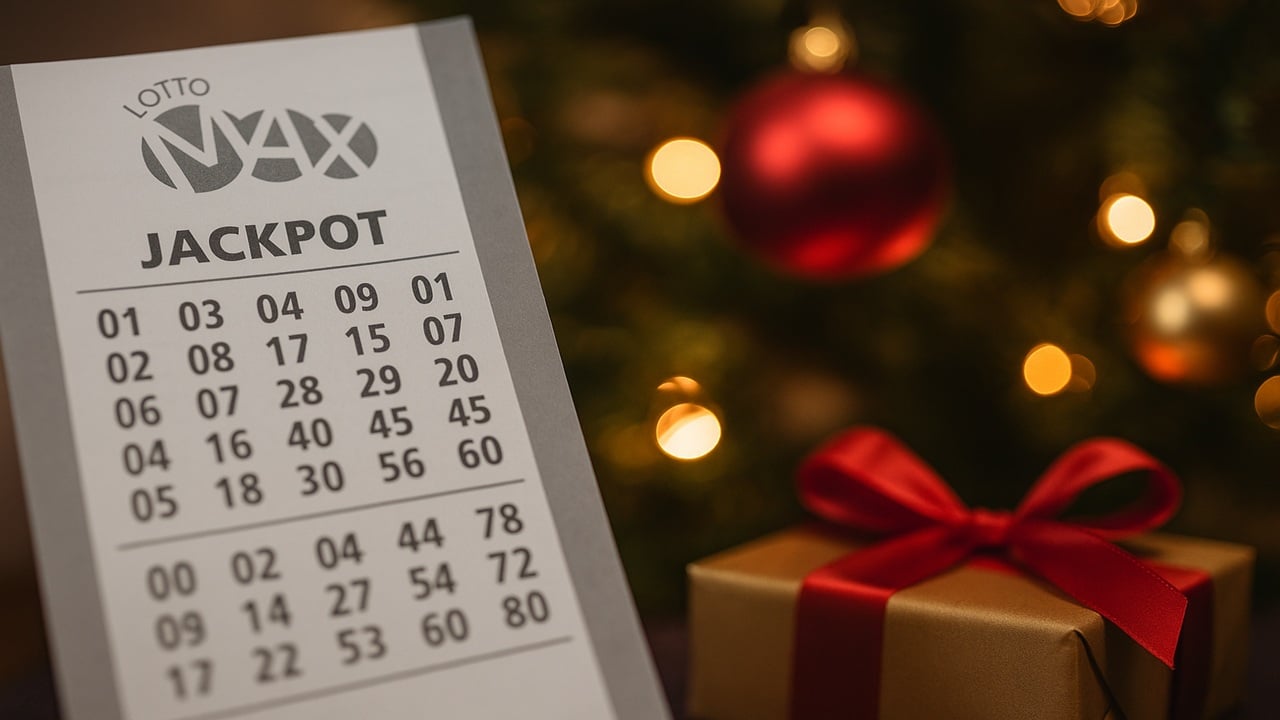
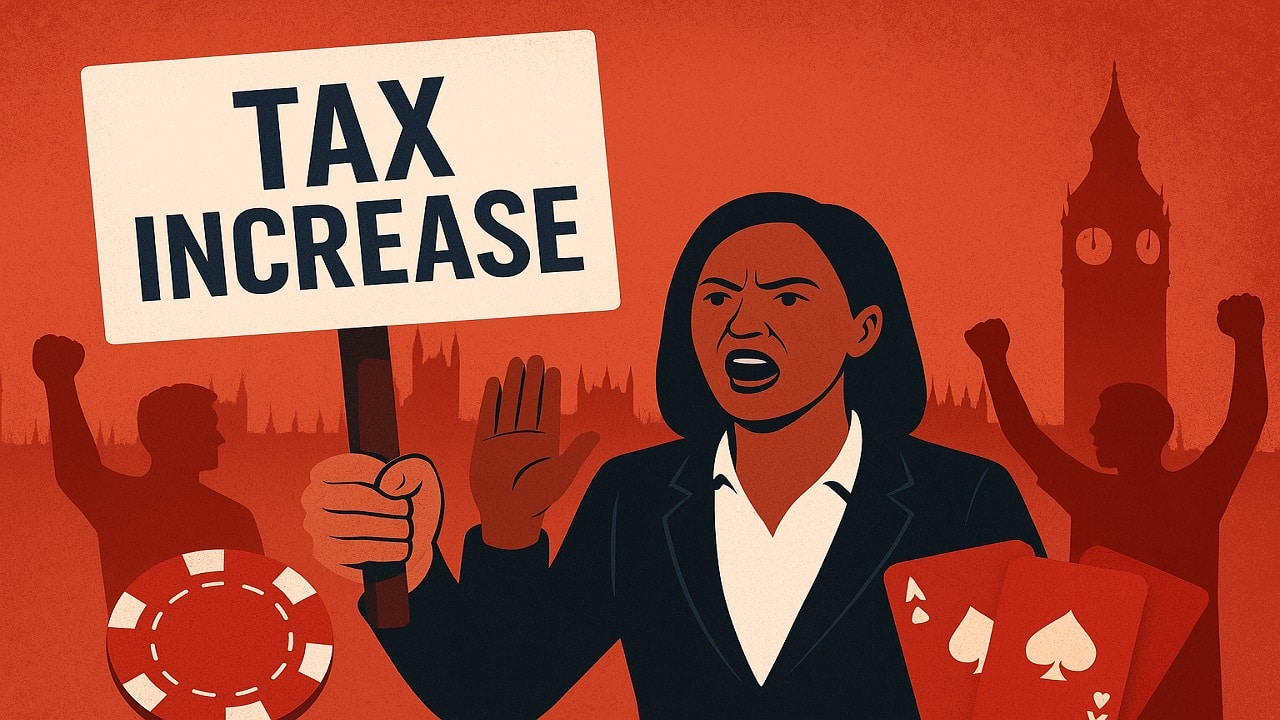
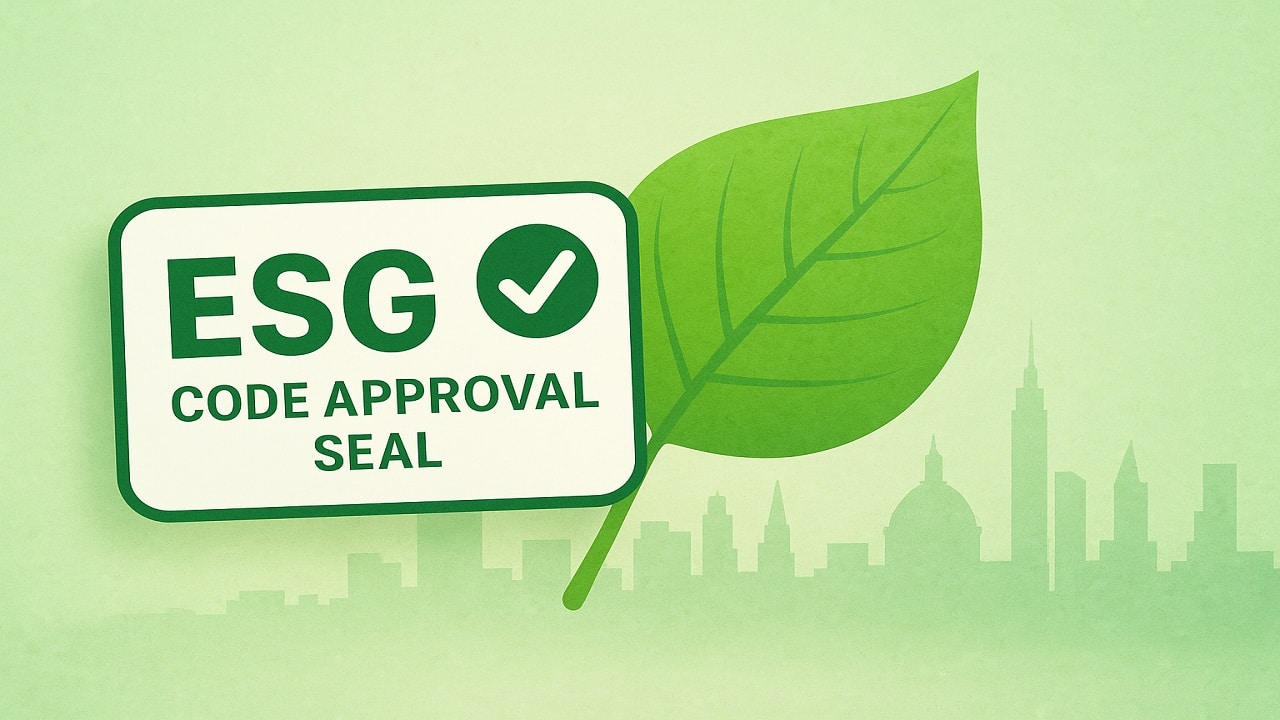
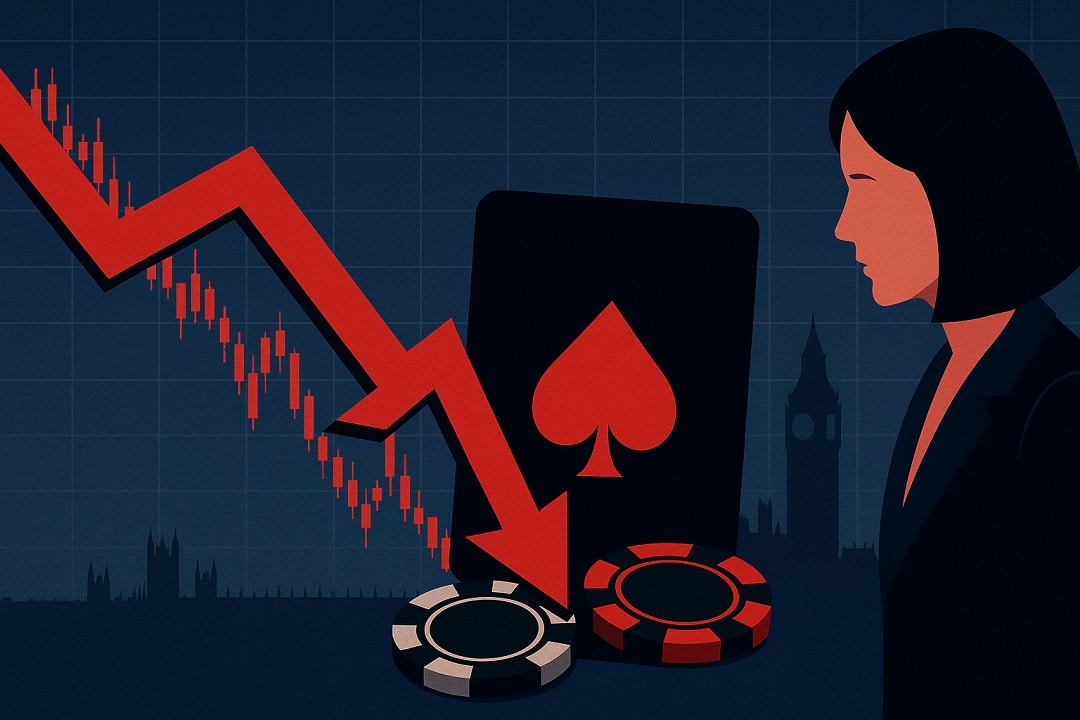

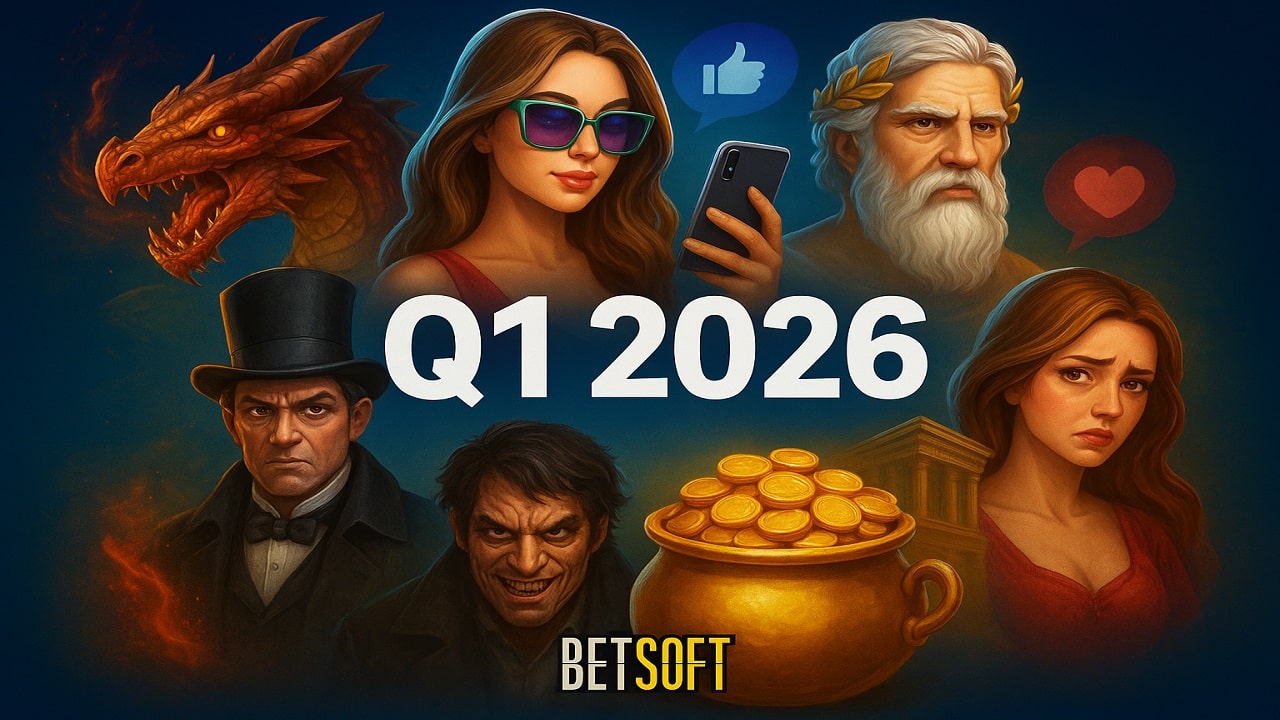
Leave A Comment